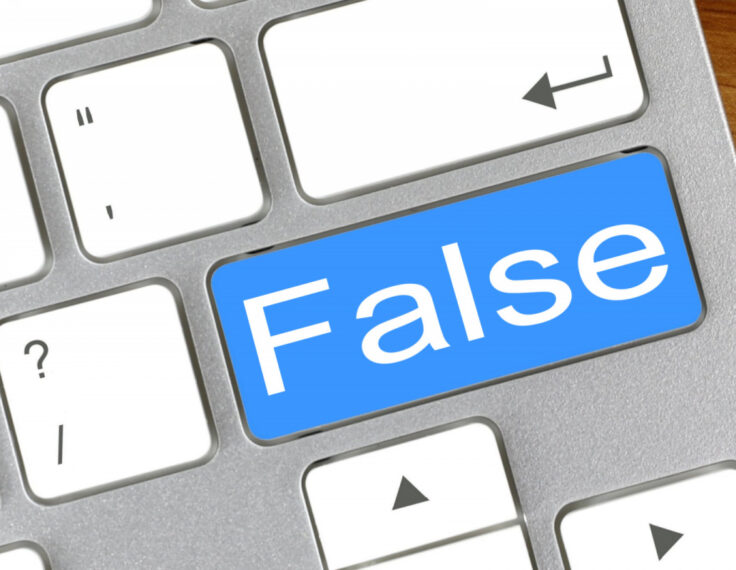Explore All Articles
All Articles
Article Topic

Correcting campaign misinformation: Experimental evidence from a two-wave panel study
Laszlo Horvath, Daniel Stevens, Susan Banducci, Raluca Popp and Travis Coan
In this study, we used a two-wave panel and a real-world intervention during the 2017 UK general election to investigate whether fact-checking can reduce beliefs in an incorrect campaign claim, source effects, the duration of source effects, and how predispositions including political orientations and prior exposure condition them.

How different incentives reduce scientific misinformation online
Piero Ronzani, Folco Panizza, Tiffany Morisseau, Simone Mattavelli and Carlo Martini
Several social media employ or consider user recruitment as defense against misinformation. Yet, it is unclear how to encourage users to make accurate evaluations. Our study shows that presenting the performance of previous participants increases discernment of science-related news. Making participants aware that their evaluations would be used by future participants had no effect on accuracy.

What do we study when we study misinformation? A scoping review of experimental research (2016-2022)
Gillian Murphy, Constance de Saint Laurent, Megan Reynolds, Omar Aftab, Karen Hegarty, Yuning Sun and Ciara M. Greene
We reviewed 555 papers published from 2016–2022 that presented misinformation to participants. We identified several trends in the literature—increasing frequency of misinformation studies over time, a wide variety of topics covered, and a significant focus on COVID-19 misinformation since 2020. We also identified several important shortcomings, including overrepresentation of samples from the United States and Europe and excessive emphasis on short-term consequences of brief, text-based misinformation.

Increasing accuracy motivations using moral reframing does not reduce Republicans’ belief in false news
Michael Stagnaro, Sophia Pink, David G. Rand and Robb Willer
In a pre-registered survey experiment with 2,009 conservative Republicans, we evaluated an intervention that framed accurate perceptions of information as consistent with a conservative political identity and conservative values (e.g., patriotism, respect for tradition, and religious purity). The intervention caused participants to report placing greater value on accuracy, and placing greater value on accuracy was correlated with successfully rating true headlines as more accurate than false headlines.

“Fact-checking” fact checkers: A data-driven approach
Sian Lee, Aiping Xiong, Haeseung Seo and Dongwon Lee
This study examined four fact checkers (Snopes, PolitiFact, Logically, and the Australian Associated Press FactCheck) using a data-driven approach. First, we scraped 22,349 fact-checking articles from Snopes and PolitiFact and compared their results and agreement on verdicts. Generally, the two fact checkers agreed with each other, with only one conflicting verdict among 749 matching claims after adjusting minor rating differences.

Exploring partisans’ biased and unreliable media consumption and their misinformed health-related beliefs
Natasha Strydhorst, Javier Morales-Riech and Asheley R. Landrum
This study explores U.S. adults’ media consumption—in terms of the average bias and reliability of the media outlets participants report referencing—and the extent to which those participants hold inaccurate beliefs about COVID-19 and vaccination. Notably, we used a novel means of capturing the (left-right) bias and reliability of audiences’ media consumption, leveraging the Ad Fontes Media ratings of 129 news sources along each dimension.

Assessing misinformation recall and accuracy perceptions: Evidence from the COVID-19 pandemic
Sarah E. Kreps and Douglas L. Kriner
Misinformation is ubiquitous; however, the extent and heterogeneity in public uptake of it remains a matter of debate. We address these questions by exploring Americans’ ability to recall prominent misinformation during the COVID-19 pandemic and the factors associated with accuracy perceptions of these claims.

Who knowingly shares false political information online?
Shane Littrell, Casey Klofstad, Amanda Diekman, John Funchion, Manohar Murthi, Kamal Premaratne, Michelle Seelig, Daniel Verdear, Stefan Wuchty and Joseph E. Uscinski
Some people share misinformation accidentally, but others do so knowingly. To fully understand the spread of misinformation online, it is important to analyze those who purposely share it. Using a 2022 U.S. survey, we found that 14 percent of respondents reported knowingly sharing misinformation, and that these respondents were more likely to also report support for political violence, a desire to run for office, and warm feelings toward extremists.

A survey of expert views on misinformation: Definitions, determinants, solutions, and future of the field
Sacha Altay, Manon Berriche, Hendrik Heuer, Johan Farkas and Steven Rathje
We surveyed 150 academic experts on misinformation and identified areas of expert consensus. Experts defined misinformation as false and misleading information, though views diverged on the importance of intentionality and what exactly constitutes misinformation. The most popular reason why people believe and share misinformation was partisanship, while lack of education was one of the least popular reasons.

Older Americans are more vulnerable to prior exposure effects in news evaluation
Benjamin A. Lyons
Older news users may be especially vulnerable to prior exposure effects, whereby news comes to be seen as more accurate over multiple viewings. I test this in re-analyses of three two-wave, nationally representative surveys in the United States (N = 8,730) in which respondents rated a series of mainstream, hyperpartisan, and false political headlines (139,082 observations).

